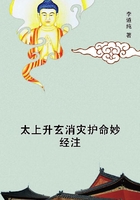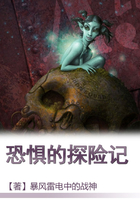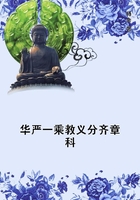"But you told me it was your identity you wished proven,"
I put in, irritably.
"Precisely," said she.
"Then these bits of evidence are--yours?" I asked, hesitatingly. One does not like to accuse a lady of an undue liking for tinsel.
"They are all I have left of my husband," she answered with a sob.
"Hum!" said I, my perplexity increasing. "Was the--ah--the gentleman blown up by dynamite?"
"Excuse me, Mr. Holmes," she retorted, rising and running the scales. "I think, after all, I have come to the wrong shop. Have you Hawkshaw's address handy? You are too obtuse for a detective."
My reputation was at stake, so I said, significantly:
"Good! Good! I was merely trying one of my disguises on you, madame, and you were completely taken in. Of course no one would ever know me for Sherlock Holmes if I manifested such dullness."
"Ah!" she said, her face lighting up. "You were merely deceiving me by appearing to be obtuse?"
"Of course," said I. "I see the whole thing in a nutshell. You married an adventurer; he told you who he was, but you've never been able to prove it; and suddenly you are deserted by him, and on going over his wardrobe you find he has left nothing but these articles: and now you wish to sue him for a separation on the ground of desertion, and secure alimony if possible."
It was a magnificent guess.
"That is it precisely," said the lady. "Except as to the extent of his 'leavings.' In addition to the things you have he gave my small brother a brass bugle and a tin sword."
"We may need to see them later," said I. "At present I will do all I can for you on the evidence in hand. I have got my eye on a gentleman who wears silver-tinsel tights now, but I am afraid he is not the man we are after, because his hair is black, and, as far as I have been able to learn from his valet, he is utterly unacquainted with swan's-down."
We separated again and I went to the club to think. Never in my life before had I had so baffling a case. As I sat in the cafe sipping a cocaine cobbler, who should walk in but Hamlet, strangely enough picking particles of swan's-down from his black doublet, which was literally covered with it.
"Hello, Sherlock!" he said, drawing up a chair and sitting down beside me. "What you up to?"
"Trying to make out where you have been," I replied. "I judge from the swan's-down on your doublet that you have been escorting Ophelia to the opera in the regulation cloak."
"You're mistaken for once," he laughed. "I've been driving with Lohengrin. He's got a pair of swans that can do a mile in 2.10-- but it makes them moult like the devil."
"Pair of what?" I cried.
"Swans," said Hamlet. "He's an eccentric sort of a duffer, that Lohengrin. Afraid of horses, I fancy."
"And so drives swans instead?" said I, incredulously.
"The same," replied Hamlet. "Do I look as if he drove squab?"
"He must be queer," said I. "I'd like to meet him. He'd make quite an addition to my collection of freaks."
"Very well," observed Hamlet. "He'll be here to-morrow to take luncheon with me, and if you'll come, too, you'll be most welcome. He's collecting freaks, too, and I haven't a doubt would be pleased to know you."
We parted and I sauntered homeward, cogitating over my strange client, and now and then laughing over the idiosyncrasies of Hamlet's friend the swan-driver. It never occurred to me at the moment however to connect the two, in spite of the link of swan's-down. I regarded it merely as a coincidence. The next day, however, on going to the club and meeting Hamlet's strange guest, I was struck by the further coincidence that his hair was of precisely the same shade of yellow as that in my possession. It was of a hue that I had never seen before except at performances of grand opera, or on the heads of fool detectives in musical burlesques. Here, however, was the real thing growing luxuriantly from the man's head.
"Ho-ho!" thought I to myself. "Here is a fortunate encounter; there may be something in it," and then I tried to lead him on.
"I understand, Mr. Lohengrin," I said, "that you have a fine span of swans."
"Yes," he said, and I was astonished to note that he, like my client, spoke in musical numbers. "Very. They're much finer than horses, in my opinion. More peaceful, quite as rapid, and amphibious. If I go out for a drive and come to a lake they trot quite as well across its surface as on the highways."
"How interesting!" said I. "And so gentle, the swan. Your wife, I presume--"
Hamlet kicked my shins under the table.
"I think it will rain to-morrow," he said, giving me a glance which if it said anything said shut up.
"I think so, too," said Lohengrin, a lowering look on his face. "If it doesn't, it will either snow, or hail, or be clear." And he gazed abstractedly out of the window.
The kick and the man's confusion were sufficient proof. I was on the right track at last. Yet the evidence was unsatisfactory because merely circumstantial. My piece of down might have come from an opera cloak and not from a well-broken swan, the hair might equally clearly have come from some other head than Lohengrin's, and other men have had trouble with their wives. The circumstantial evidence lying in the coincidences was strong but not conclusive, so I resolved to pursue the matter and invite the strange individual to a luncheon with me, at which I proposed to wear the tinsel tights. Seeing them, he might be forced into betraying himself.
This I did, and while my impressions were confirmed by his demeanor, no positive evidence grew out of it.















